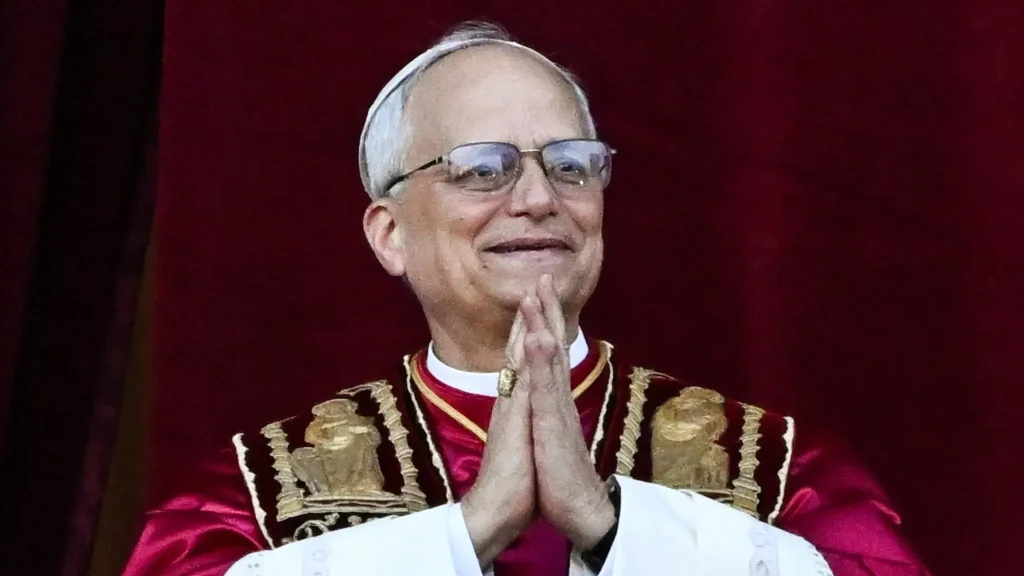The significance of a papal name cannot be overstated, as it reflects the intentions and vision of a new leader within the Catholic Church. Newly elected Pope Leo XIV, making his debut from the iconic St. Peter’s Basilica, chose a name steeped in historical weight, echoing the legacy of previous popes who bore the name Leo. This papal naming tradition holds profound importance; it symbolizes continuity and a commitment to the core values of the Church while also hinting at the directions the new pope might take. The meaning of papal names often intertwines with the broader narrative of the Church’s mission—especially in the case of historical popes named Leo, whose reigns were characterized by unyielding principles and social engagement. Therefore, the Pope’s choice, infused with historical resonance and contemporary implications, serves as an early beacon of his papacy’s priorities and initiatives, influencing both followers and future relations with the world.
When a new leader ascends to the papacy, the name he selects embodies a tradition rich in historical and spiritual significance. The act of choosing a symbolic title, such as ‘Leo,’ carries implications that resonate deeply with the values and missions intended for the tenure. This custom of papal nomenclature not only memorializes past influential popes but also establishes a framework within which the new pope intends to engage with contemporary issues. The decision-making process surrounding a pope’s name is integral, often reflecting a balance between honoring historical precedents and meeting modern challenges. Thus, the discourse surrounding papal names reveals a complex interplay between the individual’s resolve, the Church’s legacy, and the broader societal context.
The Historical Significance of the Papal Name ‘Leo’
The papal name ‘Leo’ is steeped in historical significance, most notably represented by the legacy of the 13 previous popes who bore the name. The first, Leo the Great, is remembered for his theological contributions and his role in affirming the papacy’s authority during a tumultuous era marked by invasions and internal conflict. Each pope named Leo has contributed to shaping the Church’s doctrines, making ‘Leo’ a name synonymous with strength and leadership in the Catholic tradition.
Moreover, the past popes named Leo have not only shaped religious doctrine but have also left a profound impact on social issues. For instance, Pope Leo XIII was a vanguard of Catholic social teaching, addressing the plight of workers during the industrial revolution through his pivotal encyclicals. The decision of Pope Leo XIV to adopt this name seems to echo these powerful legacies, indicating a willingness to tackle contemporary social justice issues facing the Church today.
Frequently Asked Questions
What is the significance of papal names in relation to Pope Leo XIV?
The papal name holds great significance, particularly with Pope Leo XIV’s choice of ‘Leo.’ It reflects historical strength in the papacy, echoing prominent figures like Leo III and Leo XIII. Chosen names like Leo signal the new pope’s intentions and commitment to social justice, continuing the papal naming tradition.
What does the name ‘Leo’ symbolize in the context of papal naming tradition?
The name ‘Leo’ symbolizes historical authority and moral leadership within the papacy. Chosen by 13 previous popes, including Leo the Great and Leo XIII, it emphasizes a commitment to social justice and continuity in the Catholic Church’s teachings, representing deep historical roots in the papal naming tradition.
How does the choice of Pope Leo XIV’s name impact his papacy?
Pope Leo XIV’s name choice likely indicates his intention to uphold strong, socially responsible leadership, akin to previous popes named Leo. It suggests a focus on addressing modern challenges while honoring the legacy of historical popes named Leo in the context of the papal name significance.
What can we learn from the historical popes named Leo?
Historical popes named Leo, such as Leo the Great and Leo XIII, were known for their significant contributions to church doctrine and social teaching. Pope Leo XIV’s selection of this name may be interpreted as an intention to follow in their footsteps, renewing the church’s strength and commitment to social justice.
What implications does the name ‘Leo’ have for the future of the Catholic Church under Pope Leo XIV?
The name ‘Leo’ chosen by Pope Leo XIV suggests a focus on strong leadership and social engagement, pivotal in addressing contemporary issues. It implies a commitment to continuity with past papal teachings while potentially steering the church toward a direction that emphasizes social justice and reform.
How does the papal naming tradition play a role in the choice of names like Leo?
The papal naming tradition encourages new popes to choose names that reflect their vision, values, and priorities for the Church. The name ‘Leo’ has historical significance, embodying strong, reform-minded leadership, which influences how Pope Leo XIV may navigate his papacy and its implications.
Are there any controversies associated with papal names, particularly ‘Leo’?
While the name ‘Leo’ itself is deeply respected, other names in papal history have controversies, such as past popes whose legacies included corruption or conflict. Pope Leo XIV’s choice of ‘Leo’ aims to align with a positive legacy rather than past controversies, underscoring the importance of papal name significance.
How does Pope Leo XIV’s choice of name reflect his cultural background?
Pope Leo XIV, as the first American pope, selecting ‘Leo’ may reflect a blend of honoring historical figures and bringing a cultural perspective to the papacy. This choice resonates with his background while connecting with broader church traditions, highlighting the evolving influence of cultural background in papal naming.
Could Pope Leo XIV’s papal name influence interfaith relations?
Yes, the papal name ‘Leo’ may influence the Catholic Church’s relations with other faith traditions. By choosing this name, Pope Leo XIV may signal openness and commitment to dialogue, reflecting values of peace and social justice associated with previous popes named Leo.
What is the broader context of the choice of papal names like that of Pope Leo XIV?
Papal names, such as Leo XIV, signify the pope’s vision and continuity within the Church. They embody the hopes and challenges facing modern Catholics while drawing from historical legacies, with names often chosen to inspire and align with the existing spiritual and social needs of the Church.
| Key Point | Description | ||
|---|---|---|---|
| Papal Name Significance | Symbolic Power | Interests and Priorities | Direction for the Church |
| Historical Context | The name is a tradition dating back to the Middle Ages, often honoring saints or previous popes. | ||
| Pope Leo’s Legacy | Previous popes named Leo are seen as reform-minded and socially engaged leaders. | ||
| Cultural Influences | The pope’s cultural background can inform name choice, enhancing global representation within the Church. | ||
| Controversial Names | Certain names may evoke controversy due to associations with historical popes or antipopes known for scandal or conflict. | ||
| Papal Name and Relations with Other Faiths | The name chosen can signal the pope’s approach to interfaith dialogue and collaboration. | ||
Summary
The significance of a papal name is profound, shaping not only the new pope’s identity but also the direction of the Catholic Church. In this instance, the choice of the name ‘Leo’ by Pope Leo XIV suggests a commitment to both the historical legacy of the papacy and contemporary social justice priorities. This decision symbolizes a bridge between the rich traditions of the Church and the pressing issues of our times, indicating that the new pontiff intends to uphold the values established by his predecessors while steering the Church toward a socially responsive future.



